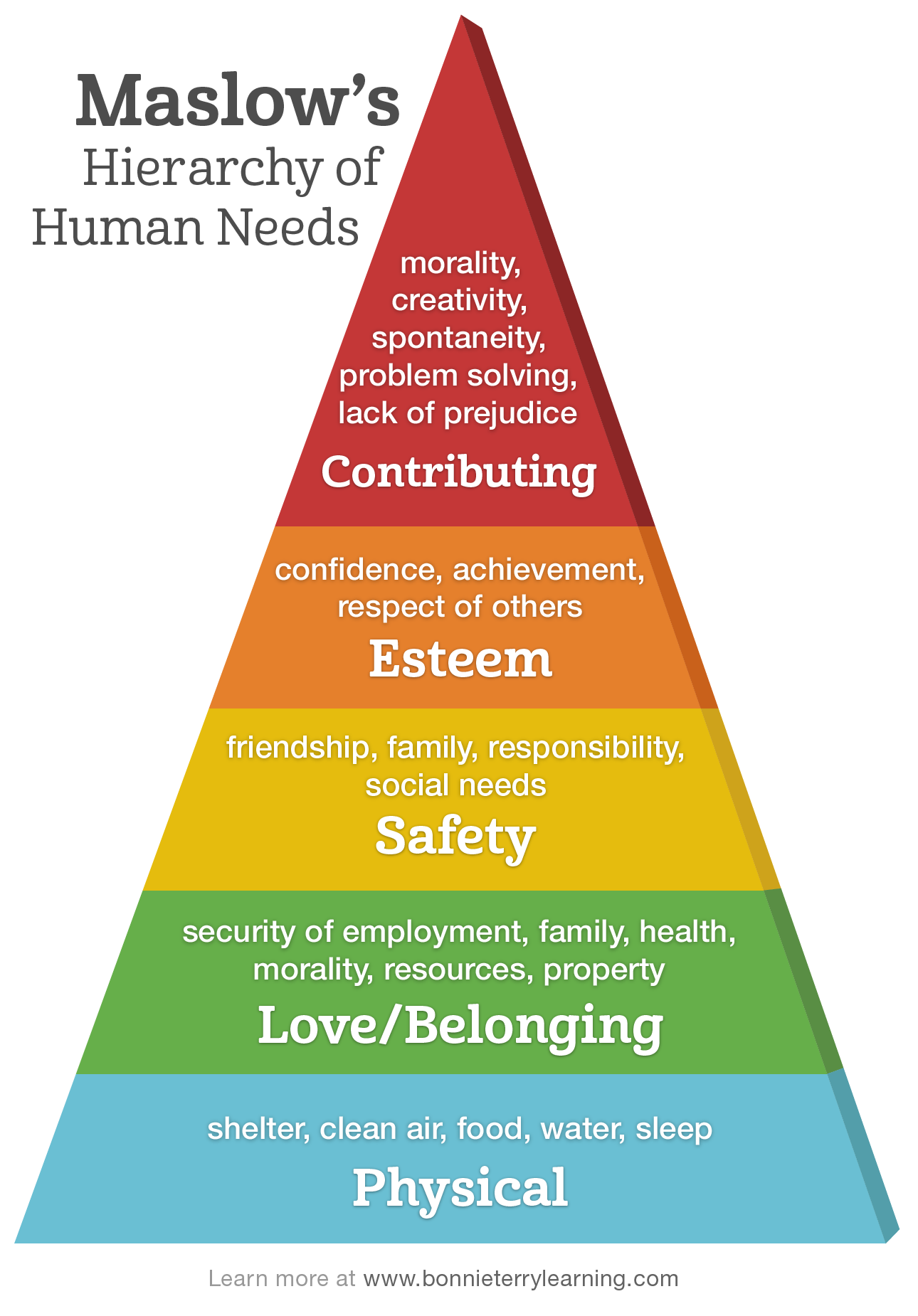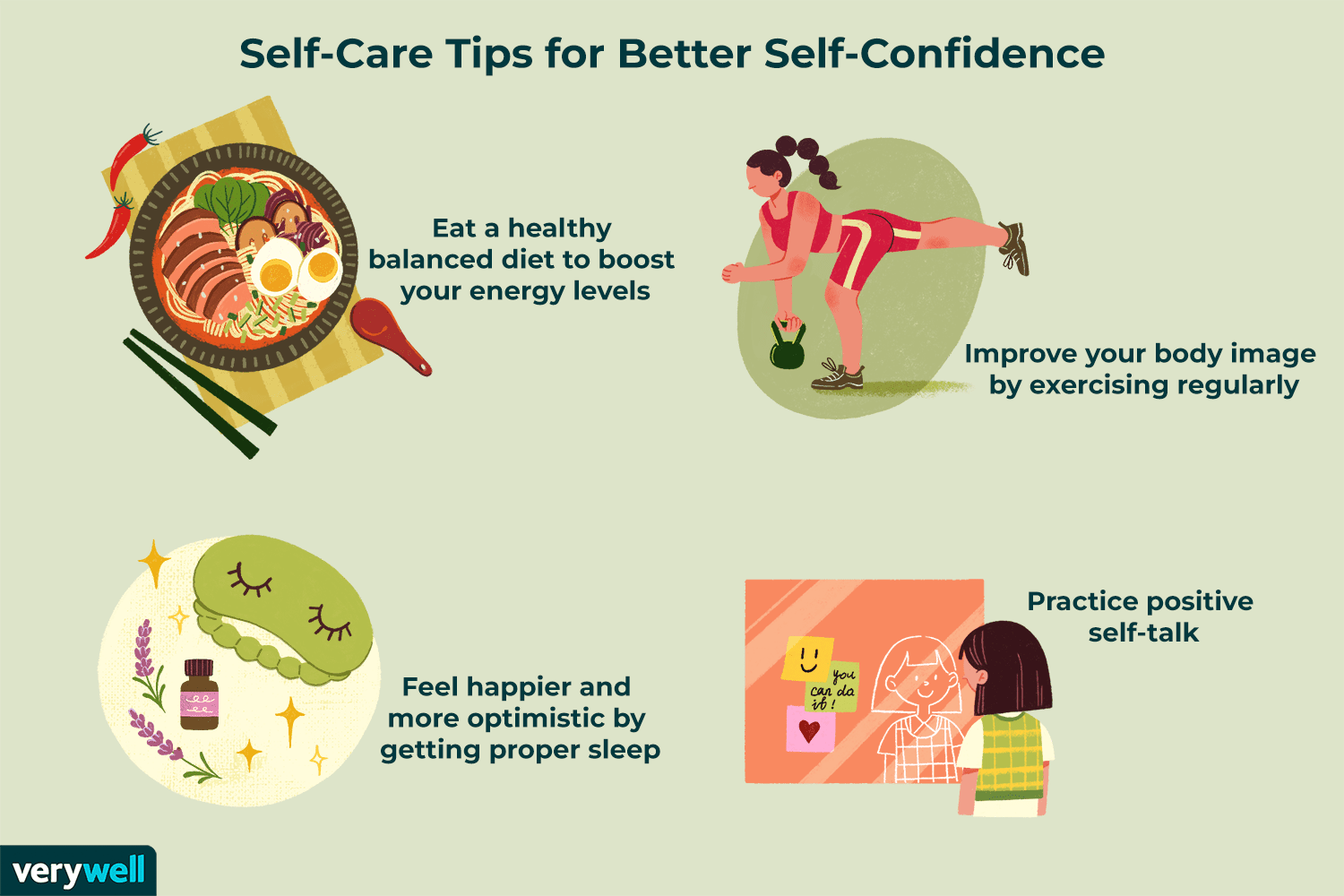To build confidence and self-esteem, set achievable goals and practice self-compassion daily. Engage in positive self-talk and surround yourself with supportive people.
Building confidence and self-esteem is essential for personal growth and overall well-being. Setting small, attainable goals helps boost your sense of accomplishment. Practicing self-compassion allows you to treat yourself with kindness and understanding during tough times. Engaging in positive self-talk replaces negative thoughts with affirmations.
Surrounding yourself with supportive and positive people encourages a nurturing environment. Regularly challenging yourself and stepping out of your comfort zone can also enhance self-confidence. By incorporating these habits into your daily routine, you can steadily build a stronger sense of self-worth and confidence.
:max_bytes(150000):strip_icc()/how-to-build-self-confidence-5209231-FINAL-fe2e0265fbed407da074f1345163ba21.jpg)
Credit: www.verywellhealth.com
The Importance Of Confidence
Confidence is the foundation of a fulfilling life. It shapes how you view yourself and the world around you. Building confidence can lead to personal growth and professional success. Let’s explore why confidence is so important.
Personal Growth
Confidence allows you to pursue new experiences. You feel more comfortable taking risks. This opens doors to personal growth. You learn new skills and discover hidden talents.
- Boosts self-awareness
- Improves decision-making
- Enhances relationships
Being confident helps you build stronger relationships. You communicate better and express your needs clearly. This leads to more meaningful connections.
Professional Success
In the workplace, confidence is key to professional success. It helps you present ideas clearly and assertively.
| Benefit | Impact |
|---|---|
| Effective Communication | Better teamwork and understanding |
| Leadership Skills | Inspires and motivates others |
| Problem-Solving | Finds solutions quickly |
Confident employees are often seen as leaders. They inspire and motivate their teams. They also handle challenges better, finding solutions quickly.
Building confidence can transform your life. It influences both personal and professional aspects. Start working on it today and see the positive changes unfold.
Understanding Self-esteem
Self-esteem is how you value yourself. It affects your thoughts and actions. Understanding self-esteem helps you build confidence and a positive life. Below, we explore self-esteem in detail.
Defining Self-esteem
Self-esteem is your opinion of yourself. It includes how you feel and think about your abilities. High self-esteem means you love and respect yourself. Low self-esteem can make you feel sad and unworthy.
People with high self-esteem:
- Feel good about themselves
- Believe in their abilities
- Are happy with who they are
People with low self-esteem:
- Doubt their abilities
- Feel unworthy
- Are unhappy with themselves
Difference Between Confidence And Self-esteem
Confidence and self-esteem are not the same. Confidence is belief in your skills and abilities. Self-esteem is how you feel about yourself overall.
Here is a table to show the difference:
| Confidence | Self-Esteem |
|---|---|
| Belief in abilities | Overall self-worth |
| Task-specific | General feeling about self |
| Can vary by task | More stable |
Strong self-esteem helps build confidence. Both are important for a happy life.
Identifying Limiting Beliefs
To build confidence and self-esteem, you must first identify limiting beliefs. These are thoughts that hold you back from reaching your full potential. Understanding and challenging these beliefs can help you grow stronger and more confident.
Common Limiting Beliefs
Many people have similar limiting beliefs. Here are a few common ones:
- “I’m not good enough” – This belief makes you doubt your abilities.
- “I can’t do it” – This belief stops you from trying new things.
- “People won’t like me” – This belief makes you fear social situations.
Overcoming Negative Thoughts
Overcoming negative thoughts is essential to build confidence. Here are some steps to help:
- Recognize the negative thought.
- Challenge the thought with evidence.
- Replace it with a positive affirmation.
| Negative Thought | Positive Affirmation |
|---|---|
| “I can’t do this” | “I can learn and succeed” |
| “I’m not smart enough” | “I am capable and intelligent” |
Setting Realistic Goals
Setting realistic goals is a key step in building confidence and self-esteem. It helps you break down big dreams into manageable tasks. This ensures steady progress and avoids feelings of being overwhelmed.
Short-term Goals
Short-term goals are small steps that you can achieve quickly. They are usually tasks you can complete within a day, a week, or a month. These goals keep you motivated and provide quick wins.
- Daily tasks like making your bed or reading for 20 minutes
- Weekly activities such as going for a jog or cooking a new recipe
- Monthly achievements like finishing a book or learning a new skill
Short-term goals should be specific, measurable, and attainable. This helps you see progress and boosts your confidence.
Long-term Aspirations
Long-term aspirations are bigger dreams that take more time to achieve. These could be goals for the next year or even the next five years. Long-term goals guide you towards your larger ambitions.
- Career goals such as getting a promotion or starting a new business
- Educational milestones like earning a degree or mastering a subject
- Personal dreams including traveling the world or buying a house
Long-term aspirations require planning and perseverance. They provide a sense of direction and purpose, which enhances self-esteem.
Breaking down your long-term goals into smaller steps makes them less daunting. This approach keeps you focused and motivated.
Building Positive Habits
Building positive habits is crucial for boosting confidence and self-esteem. Small daily actions can lead to big improvements. Consistency is key. Let’s explore some habits that can help.
Daily Affirmations
Daily affirmations are powerful. They can change your mindset. Start your day with positive statements. Say things like, “I am strong,” or “I am capable.” Write them down. Repeat them out loud. Believe in them.
You can use sticky notes. Place them where you can see them. Use a journal. Write your affirmations each morning. Make it a habit. Over time, you will notice a change.
Healthy Lifestyle Choices
A healthy lifestyle boosts confidence and self-esteem. Focus on these key areas:
| Habit | Benefit |
|---|---|
| Exercise Regularly | Improves mood and energy levels |
| Eat Nutritious Foods | Supports overall well-being |
| Get Enough Sleep | Enhances mental clarity |
Exercise is essential. Aim for 30 minutes a day. Choose activities you enjoy. Walking, dancing, or yoga are good options.
Eating nutritious foods is vital. Include fruits, vegetables, and whole grains. Avoid processed foods and sugar. Drink plenty of water.
Sleep is crucial. Aim for 7-9 hours each night. Create a bedtime routine. Limit screen time before bed. A good night’s sleep boosts your mood and energy.
Building positive habits takes time. Start with small steps. Consistency is key. You will see the benefits.

Credit: biglifejournal.com
The Role Of Self-care
Building confidence and self-esteem can be challenging. One of the most effective ways to achieve this is through self-care. Self-care nurtures both the body and mind, creating a strong foundation for self-confidence.
Physical Self-care
Physical self-care involves taking care of your body. It is essential for overall well-being. Here are some ways to practice it:
- Exercise Regularly: Physical activity boosts your mood and energy levels.
- Eat Healthily: A balanced diet fuels your body and mind.
- Get Enough Sleep: Quality sleep rejuvenates your body and brain.
These practices help your body function optimally. They also positively impact your mental state.
Mental And Emotional Well-being
Mental and emotional self-care is just as important. It helps maintain a healthy mind. Here are some ways to nurture your mental and emotional well-being:
- Practice Mindfulness: Mindfulness techniques reduce stress and anxiety.
- Engage in Hobbies: Doing what you love boosts happiness.
- Connect with Loved Ones: Positive relationships support emotional health.
By taking care of your mental and emotional health, you build resilience. This enhances your ability to face challenges confidently.
Seeking Support
Building confidence and self-esteem often requires seeking support. This support can come from various sources, such as professionals or friends and family. Let’s explore how seeking support can help you build confidence.
Professional Help
Professional help can be a game-changer for your confidence. Therapists and counselors are trained to help you overcome self-doubt. They use techniques that address the root causes of low self-esteem. Here are some benefits of seeking professional help:
- Personalized Strategies: Tailored approaches to boost your confidence.
- Safe Space: A confidential environment to express your feelings.
- Expert Guidance: Professional advice based on psychological principles.
Supportive Relationships
Having supportive relationships is crucial for building self-esteem. Friends and family can offer emotional support and encouragement. Surround yourself with positive influences who uplift you. Here are some ways supportive relationships help:
- Emotional Support: Friends can listen and offer comfort during tough times.
- Encouragement: Family can motivate you to pursue your goals.
- Constructive Feedback: Loved ones can provide helpful advice.
| Benefit | Professional Help | Supportive Relationships |
|---|---|---|
| Personalized Strategies | ✔️ | ❌ |
| Safe Space | ✔️ | ✔️ |
| Expert Guidance | ✔️ | ❌ |
| Emotional Support | ✔️ | ✔️ |
| Encouragement | ✔️ | ✔️ |
| Constructive Feedback | ✔️ | ✔️ |
Measuring Progress
Measuring progress is crucial for building confidence and self-esteem. It helps you see your growth and understand areas of improvement. This section focuses on effective ways to measure your journey toward better confidence and self-esteem.
Tracking Milestones
Tracking milestones helps you see small achievements over time. Keep a journal to note daily or weekly progress. Use a table to organize your milestones:
| Date | Milestone | Notes |
|---|---|---|
| 01/01/2023 | Spoke confidently in a meeting | Felt nervous but completed it |
| 01/15/2023 | Made a new friend | Approached someone new |
This table helps you see tangible progress. Reviewing it often keeps you motivated.
Celebrating Achievements
Celebrating achievements boosts your morale. It reinforces positive behavior. Here are some ways to celebrate:
- Give yourself a treat.
- Share your success with friends.
- Take a relaxing day off.
Celebrating even small wins builds a positive mindset. It encourages you to keep going.

Credit: bonnieterrylearning.com
Conclusion
Building confidence and self-esteem takes time and effort. Practice self-care, set achievable goals, and celebrate small victories. Surround yourself with supportive people. Remember, every step forward counts. Keep pushing yourself and watch your confidence grow. Believe in your potential and take charge of your journey today.
Your future self will thank you.

